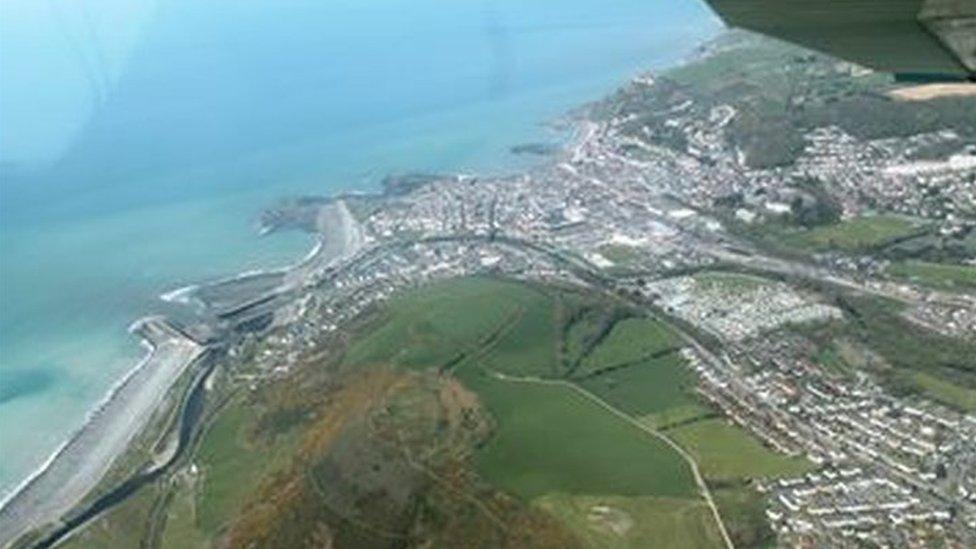A look back at the Aberystwyth-Carmarthen railway line
- Published
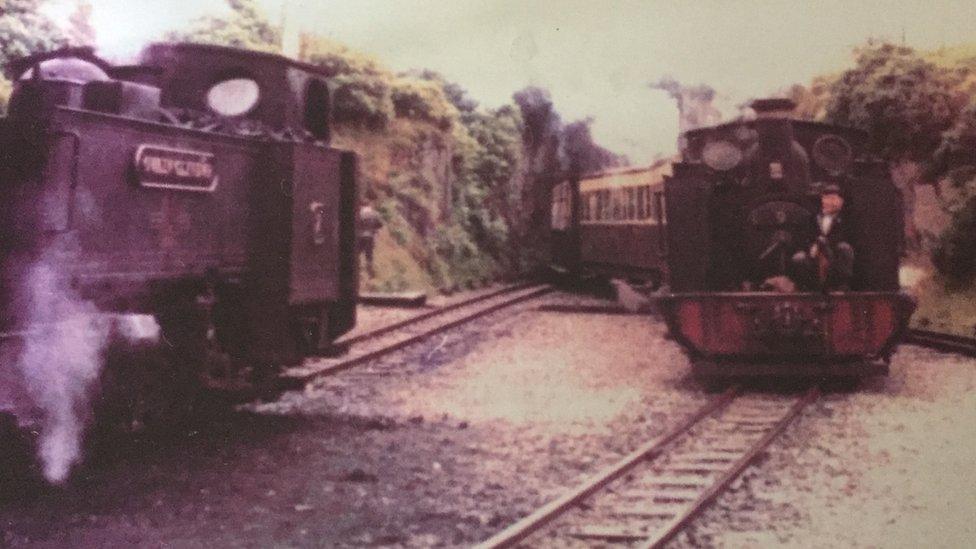
Gwyn Jones rides on the front of a steam train between Aberystwyth and Devil's Bridge
Runaway trains, heating meals on the boiler pipes and pints of bitter to wash away the coal dust - you would be pressed to find a steam train worker without a story to tell.
Pictured riding on the front of a train - "you wouldn't get away with that these days" - 77-year-old Gwyn Jones describes his years as a steam train fireman as the best of his life.
And as the campaign to reinstate the Aberystwyth-Carmarthen railway line gathers pace, we look back at when it was many people's only option, as part of BBC Wales' Travel Week.
The railway line connecting north and south Wales closed in 1965, bringing with it redundancies and uncertainty.
In 2016, a train journey from Aberystwyth to Carmarthen - about a 90-minute drive - would take about six hours, via Shropshire, Newport and Cardiff.
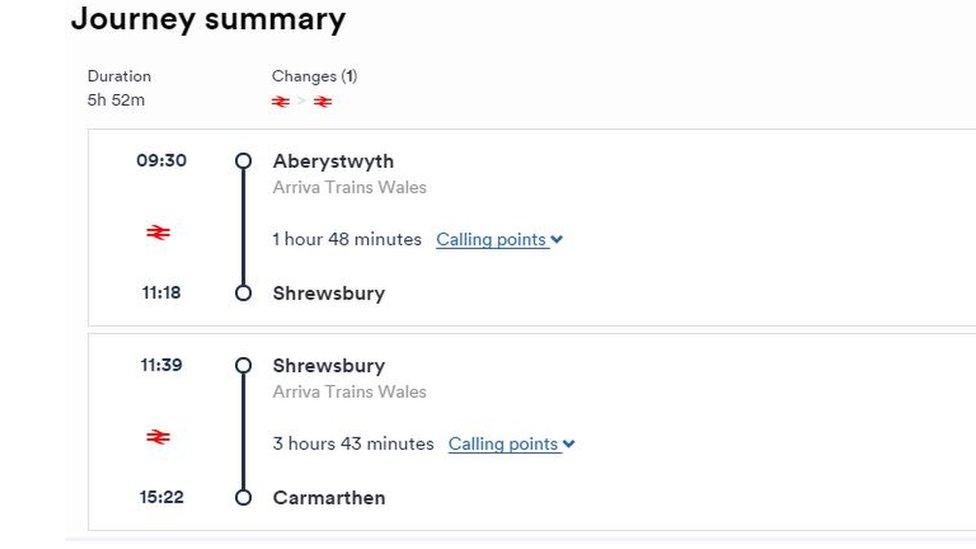
But Mr Jones, from Rhydyfelin near Aberystwyth, remembers when this was certainly not the case - and he would service two daily passenger trains between Aberystwyth and Carmarthen taking home workers and dropping off farmers (and their cattle).
He started in January 1956, in Hereford and then Bristol, as an engine cleaner doing his time before he could qualify as a fireman and request a placement nearer his home town.
"To get a fireman's job, it was what we called dead man's shoes, because people would get to 65 and retire and then there's a vacancy," he said.
But Mr Jones got lucky and was able to move to Aberystwyth to work as a fireman after just four years. He stayed working there until 1965 when the line shut and, after a short stint in Wolverhampton, requested redundancy and moved back to Aberystwyth and to his wife Liz, who died 13 years ago.
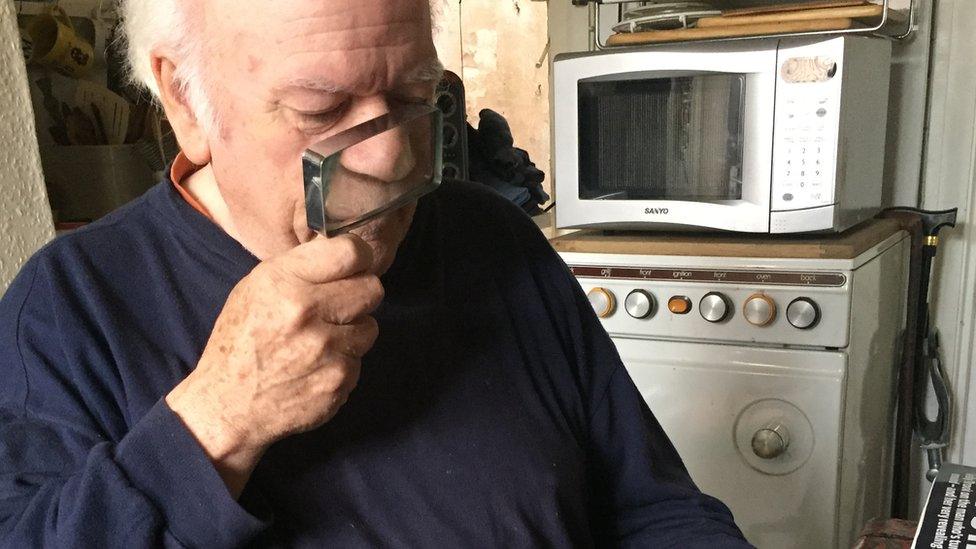
Mr Jones looking through old train tickets, badges and photographs
"They were the best days of my working life, on the railway," Mr Jones said.
"Not many people had cars and there were only about three taxis, it was only buses and lorries on the roads really.
"There was a late train, a 5.30 for workers which I would be on as far as Lampeter, when the Carmarthen men would take over.
"Then there would be another at about 9.30 or 10, for the people who had been out for a drink after work - there wasn't that much else to do for entertainment back then! And I'd be back here [Aberystwyth] by about 11."
Elephant express?
Mr Jones also worked on goods trains - coal wagons and petrol tankers.
"I remember one year, the circus came by rail too.
"They were staying out by Llanilar and came in by train, with all the animals, so you'd have elephants coming in by rail. They had a special train to pull them.
"We used to carry cattle for the farms too."
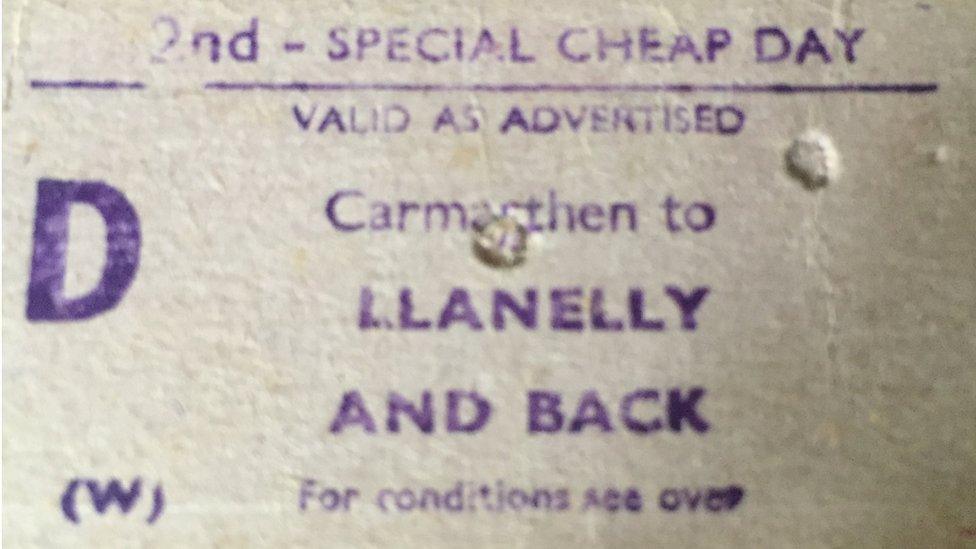
But while Mr Jones' memories of the railway are some of his fondest - the job came with its struggles.
"I was on runaway trains twice, which were a whisker away from disaster," he added.
"And coming up to Aber with the goods trains, if you had a heavy load there was a bank you wouldn't be able to pull it up.
"So the signal men would have to call to send another engine to give it a push, so you'd be stuck waiting for a second engine to arrive."
But Mr Jones said the camaraderie among the firemen, who were in charge of starting and maintaining the coal fires, was one of the best parts of the job.
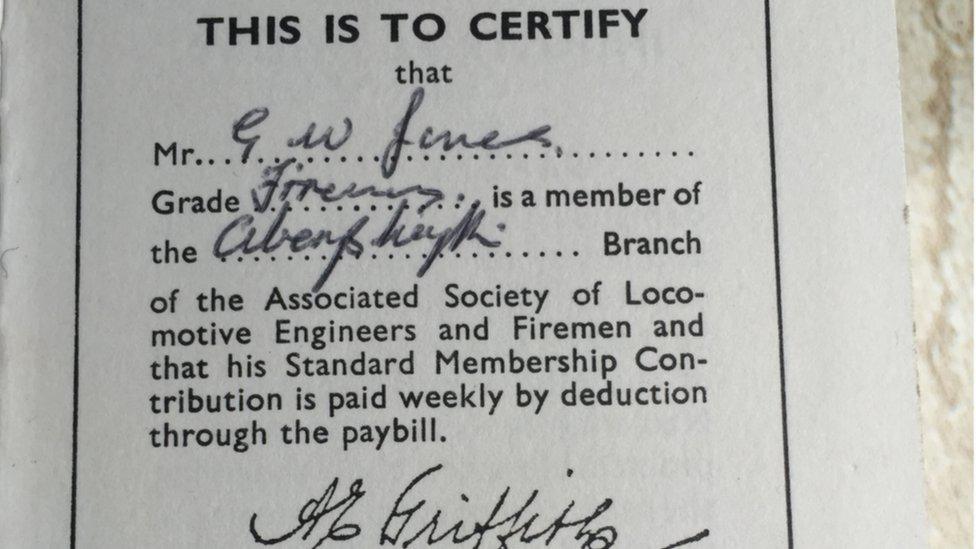
He remembers how the men would take in flasks of tea, snacks and meals, and heat them on the boiler pipes over the train doors.
"You could take in tins of beans and because of the pipes on the footplate above the door, you could puncture the line and put them where the hot pipes were and that was how you cooked your beans.
"And we would wash everything down and then put bacon and a couple of eggs just over the fire door and just rest it there and it would start sizzling. I can still smell it now.
"A lot of drivers who had been on since the 1920s and 30s used to bring glass bottles of tea and put them up by the pipes, I don't understand how the glass didn't burst or break but they always managed it so that it never did."
But when the line went in 1965, Mr Jones' job - and many others - went with it. He was relocated to Wolverhampton, but immediately heard rumours of plans to close the depot there.
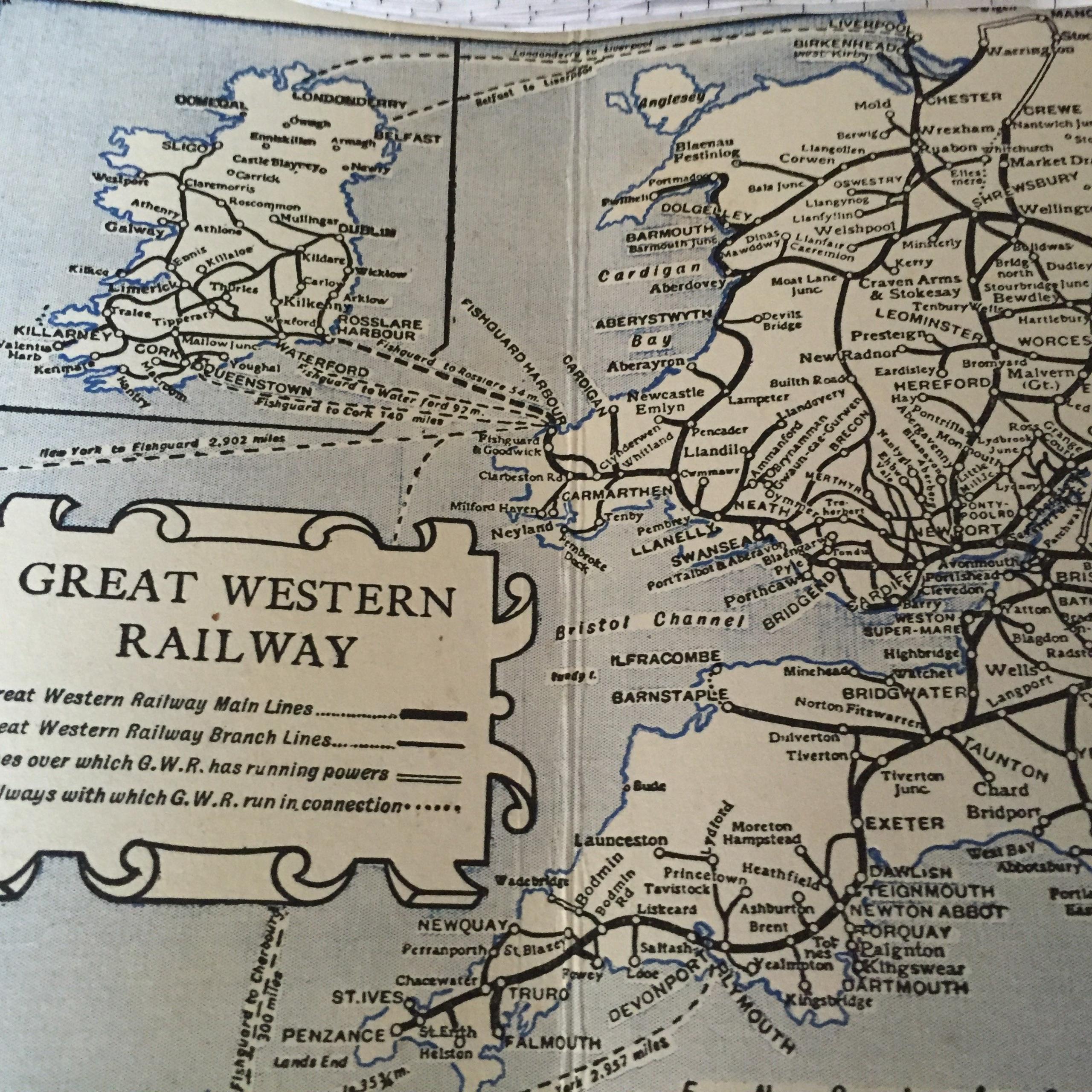
"I was courting Liz at the time, so the pull to come back to Aber was certainly there.
"I'd been working for the 10 years on the railway, and I asked my shed master privately to be honest with me, should I take redundancy while I could?
"I was given £140, which was a lot of money in those days."
Mr Jones went on to do various jobs, including as a post man and delivering bread.
"I was very sad to see [the railway line] go. My 10 years there, I was much happier than in other jobs I've had over the years.
"The camaraderie was absolutely terrific. All the railway men, because of the dust, would drink to get rid of it.
"Well, saying that, we enjoyed a pint of bitter anyway, but to get rid of the dust we always called in for a couple of pints.
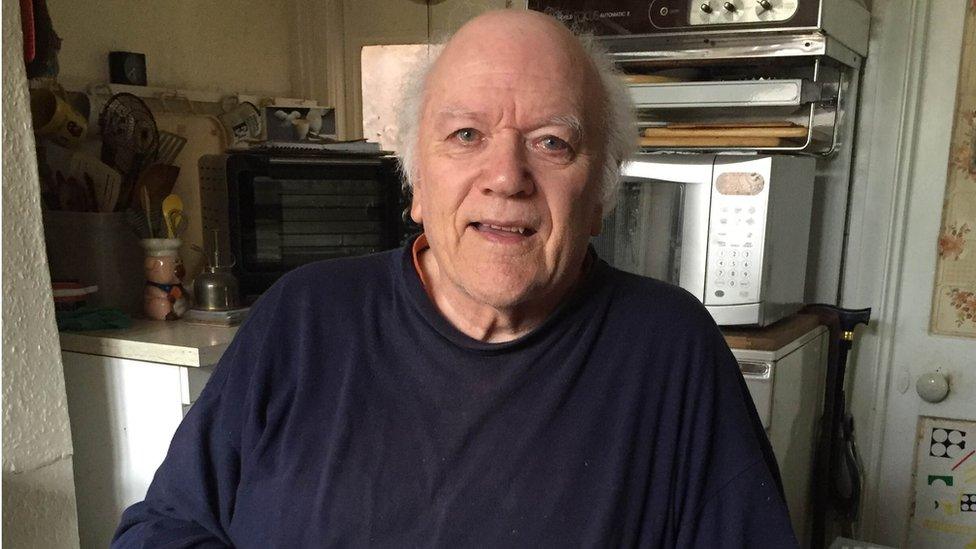
"Miners used to do the same back in the day and pubs waited with beer lined up for them to come off shift.
"People talk about the 'good old days' like it was all so much better then. I don't know though - maybe it really was."

Bringing back the line
The Welsh Government has funded a feasibility study into reopening the Aberystwyth-Carmarthen railway line.
Jeremy Corbyn declared his support during the Labour leadership debate on 4 August.
Campaign group Traws Link Cymru has flown the length of line to take aerial shots of how much of it remains, and found just 3% had been built on.
Reinstating the 56-mile line could cost about £650m.
- Published26 August 2015
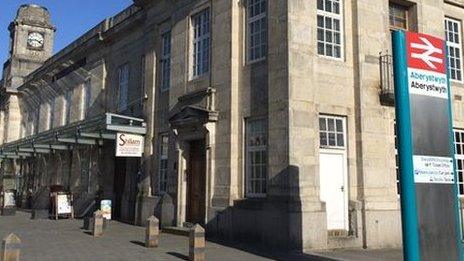
- Published16 January 2015
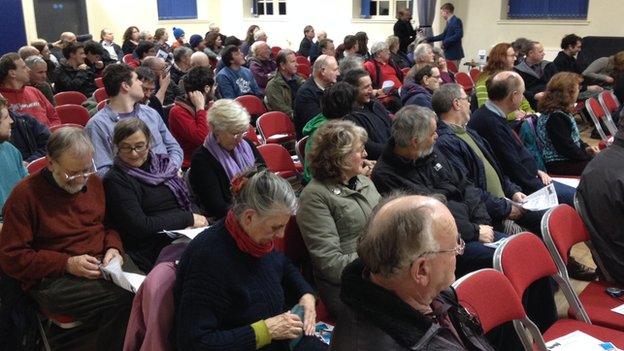
- Published4 August 2016

- Published22 March 2014
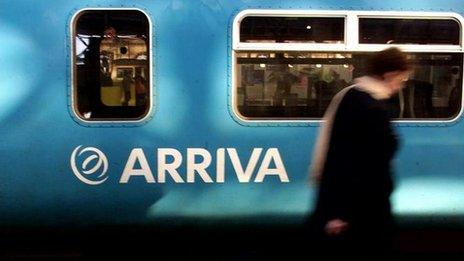
- Published9 May 2016
